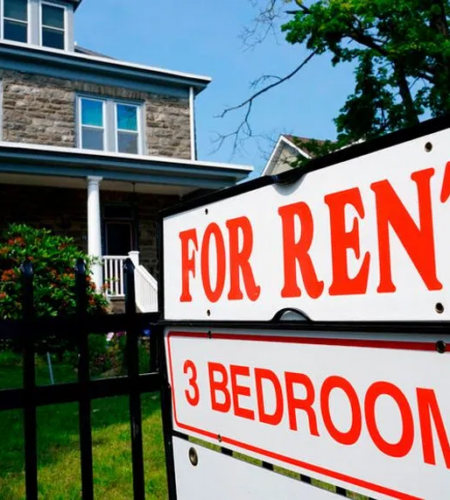In the age-old debate between renting and buying, a recent analysis by Bankrate provides a compelling argument for renting, especially in America’s largest metropolitan areas. For many, the dream of owning a home has been an enduring symbol of success and stability. However, in today’s economic climate, this dream might be more financially draining than it’s worth—at least for now.
The Financial Landscape
Bankrate’s study found that the monthly cost of renting is, on average, 37% cheaper than owning a home across the 50 largest metro areas in the United States. As of February, the typical monthly mortgage payment for a median-priced home in the U.S. stood at $2,703, whereas the typical monthly rent was $1,979. This stark difference underscores a crucial point: renting offers significant relief for those already feeling the financial squeeze, providing a reassuring cushion in these uncertain times.

The Numbers Speak for Themselves
In 21 of the top 50 U.S. metro areas, owning a home is at least 50% more expensive than renting. This is particularly pronounced in the West, where the cost of living is notoriously high. For instance, the average monthly rent in the San Francisco-Oakland-Berkeley area is $3,024, but the typical mortgage payment soars to $8,486—a staggering 180.7% difference. Similarly, in San Jose-Sunnyvale-Santa Clara, the gap is 162.3%, with rent averaging $3,255 compared to mortgage payments of $8,539.
Other notable cities with significant gaps include:
- Seattle-Tacoma-Bellevue, WA: Rent is $2,191, while mortgage payments are $4,930 (125% difference).
- Salt Lake City, UT: Rent is $1,673 compared to $3,161 in mortgage payments (89% difference).
- Austin-Round Rock-Georgetown, TX: Rent averages $1,753 versus $3,269 for mortgage payments (86.5% difference).
Smaller Gaps, Same Story
Even in regions where the difference between renting and buying is smaller, renting remains the more economical choice. In the Northeast and Midwest, where the cost of living tends to be lower, the financial gap narrows but doesn’t close. For example, in Detroit-Warren-Dearborn, MI, the typical monthly rent is $1,395, just 2% lower than a mortgage payment of $1,423. Similarly, in Pittsburgh, the average rent is $1,415, compared to a mortgage payment of $1,488—a 5.1% difference.
Other cities with smaller but still notable gaps include:
- Philadelphia-Camden-Wilmington, PA-NJ-DE-MD: Rent is $1,829, while mortgage payments are $1,988 (8.7% difference).
- Cleveland-Elyria, OH: Rent is $1,377, compared to mortgage payments of $1,537 (11.6% difference).
- Buffalo-Cheektowaga, NY: Rent averages $1,295, whereas mortgage payments are $1,556 (20.2% difference).
Should You Rent or Buy?
The decision to rent or buy hinges on individual financial circumstances. According to a recent Bankrate survey, 42% of Americans believe now is a bad time to buy a house. This sentiment is echoed by Bankrate analyst Alex Gailey, who advises financially stretched Americans to continue renting. “If you can’t afford a home in this market, you should put your FOMO aside and keep renting,” Gailey says. Use this time to build savings, pay down debt, and invest in other ways, such as through retirement accounts or the stock market.
Buying might still be a viable option for those who are financially prepared. Key readiness indicators include having a down payment saved, little to no debt, and a fully funded emergency fund. Gailey notes, “If you’re financially ready to buy a home, trying and time the housing market may be riskier. Instead, you should ‘date the rate and marry the house.’ You can always refinance later when interest rates drop.”

The Bottom Line
Renting has emerged as the financially savvy choice in most major U.S. cities, thanks to the significant cost savings it offers over buying. This trend is especially pronounced in high-cost areas like San Francisco and San Jose, where the cost difference can be as much as 180%. Even in regions with smaller disparities, renting is still the more economical option.
Ultimately, whether you rent or buy should be a decision based on your financial health and long-term goals. For many, renting provides immediate economic relief and offers the flexibility to build wealth in other ways while waiting for a more opportune time to enter the housing market. The dream of homeownership doesn’t have to be abandoned; it just needs to be approached strategically, giving you the confidence that you’re making the best financial decisions for your future.


